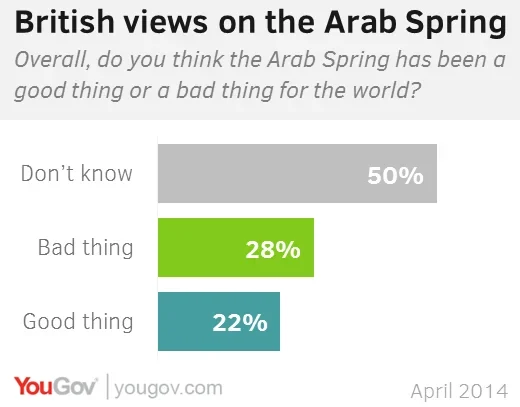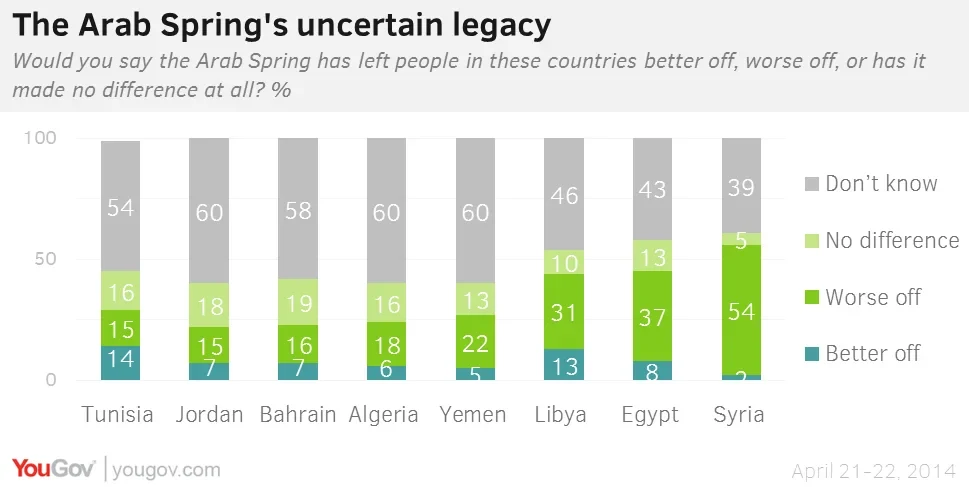Three years on, the Arab Spring is viewed in Britain with uncertainty and negativity
On Monday an Egyptian court handed down over 683 death sentences en masse, for the killing of a single police officer during protests in southern Egypt in August 2013. It is part of a sequence of trials, roundly condemned by lawyers and human rights campaigners, seen as part of a continuing crackdown on Islamists following the ouster of former President Mohammed Morsi of the Muslim Brotherhood.
The return of oppressive, military-backed rule in Egypt has led some to declare the end of the "Arab Spring", the wave of protests and civil uprisings that began in Tunisia in 2011, but soon spread throughout the Middle East. Since then, some countries have instituted democratic reforms, such as Jordan and Morocco, though these developments have been largely overshadowed by the civil war and crises faced by other countries in the region, particularly Syria, Libya and Egypt, to this day.

In a far cry from the excitement and hope that accompanied its earliest days, the Arab Spring has have left a muddled and uncertain impression on the British people. Half of the public don’t know whether the Arab Spring has ultimately been good or bad for the world as a whole. 28% say it has been bad for the world – slightly more than the 22% who say it has been good.
Country by country
Asked about some specific countries where civil uprisings and protests took place since 2011, feelings are even more uncertain and, in some cases, much more pessimistic. The majority of people don’t know how the Arab Spring has left people in Tunisia (54% “don’t know”), Jordan (60%), Bahrain (58%), Algeria (60%) and Yemen (60%), with most of the rest of the public saying the Arab spring either made no difference or left the countries worse off. Tunisia, which has been cited as a success story, but continues to face economic and security troubles, is seen as better off by more than any of the eight countries listed, though this is still only 14%.
On three other countries, Libya, Syria and Egypt, the majority of British people are willing to make an assessment, but it is mostly negative.

31% say Libya, which underwent a civil war and was subject to a British involvement in a Western intervention, is worse off, compared to only 13% who say it is better off and 10% who say the Arab Spring has made no difference to the country.
For Egypt, assessments are somewhat more negative. 37% the Arab Spring has left Egypt worse off, 13% say it has made no difference, and just 8% say it has left it better off.
The majority of the public agree that Syria, where a deadly and highly destructive civil war continues to rage, is worse off. Only a negligible 5% and 2% say the Arab Spring has had no effect or left Syria better off.
Image: Getty









